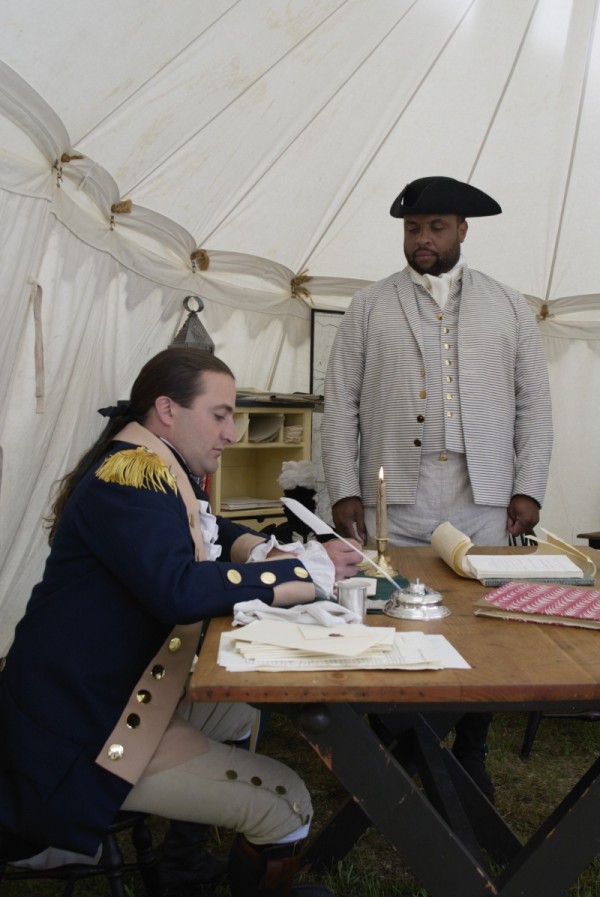
James Armistead, portrayed by Rex Ellis, confers with the Marquis de Lafayette, played by Mark Schneider.
Their names are sometimes footnotes in history, but many of these heroes stood shoulder to shoulder in the fight for independence with the founders of a new nation.
Some of their stories are featured on the American Heroes Channel’s broadcast “The American Revolution,” which premieres Monday, Dec. 15 at 9 p.m. You can learn more about the program here.
James Armistead
With his master’s permission, James Armistead joined the patriot cause by volunteering to help Marquis de Lafayette. Armistead was able to get into British Gen. Charles Cornwallis’ camp, where he overheard information that he passed to Lafayette.
Apparently he was so good at spying that Cornwallis thought Armistead was spying for the British side.
Ultimately, Armistead won his freedom and even took Lafayette’s name.
Francis Fauquier
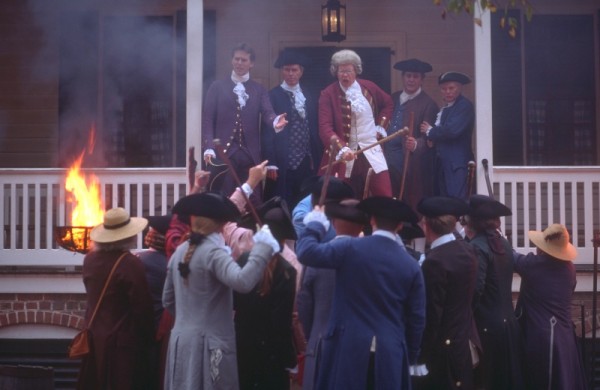
Francis Fauquier, center, portrayed by Charles Eugene Bush, tries to calm a crowd that’s enraged by the Stamp Act.
The Stamp Act was created to reduce Great Britain’s debt incurred from the French and Indian War. Parliament created an excise tax on newspapers, customs documents, licenses, college diplomas, and most legal documents. Some colonists who resented the tax hanged George Mercer, Virginia’s stamp distributor, in effigy. And on one fall day when Fauquier was standing on the porch of R. Charlton’s Coffeehouse, he saw a throng of men confronting Mercer. He intervened and offered Mercer shelter in his own home.
Fauquier said he would have called the gathering “a mob did I not know that it was chiefly, if not altogether, composed of gentlemen of property.”
Jack Jouett
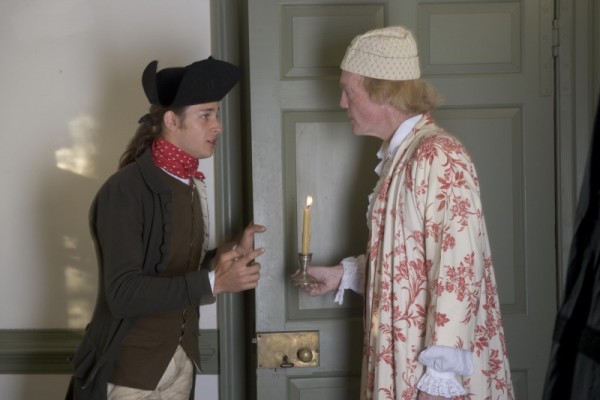
Jack Jouett, portrayed here by Stuart Lilly, warnsThomas Jefferson of the approaching British forces.
On the night of June 3, 1781, a patron in the Cuckoo Tavern found himself in proximity to 250 mounted British soldiers who seemed intent on capturing Thomas Jefferson, Patrick Henry and other patriots. So the Virginia militiaman put down his drink, left the Hanover County, Va., establishment and galloped through the night to save Jefferson from a British hangman.
That militiaman was Jack Jouett and on that night, he became Virginia’s Paul Revere.
Thomas Nelson Jr.
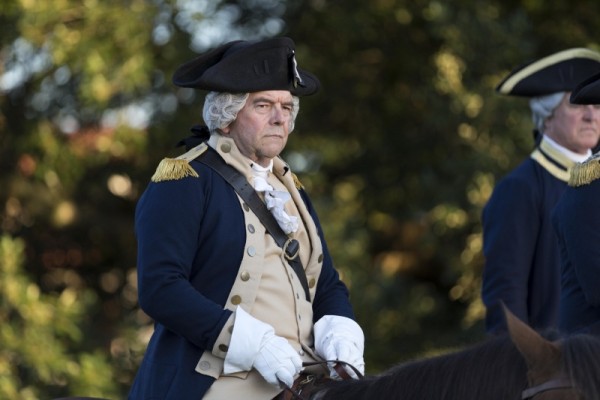
Lee Peters portrays Thomas Nelson Jr.
Almost a year after the Sons of Liberty protested the British Tea Act by dumping tea into the Boston Harbor, Virginia had a tea party of its own. On Nov. 7, 1774, Yorktown citizens boarded a ship called Virginia and poured two half-chests of tea into the York River. A merchant — and loyalist — named James Parker identified Thomas Nelson Jr. as one of the “most active” instigators.
Regarded as one of the Founding Fathers, Nelson commanded the Lower Virginia Militia, was appointed to the Continental Congress and later signed the Declaration of Independence before succeeding Thomas Jefferson as Virginia’s governor in 1781.
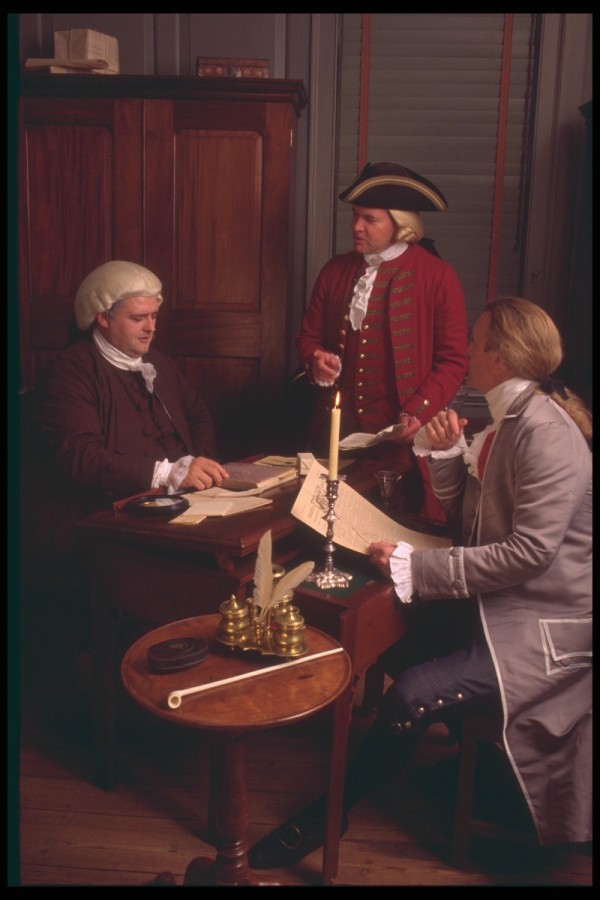
Peyton Randolph
We think of George Washington when we hear “the father of our country.” But it could have been Peyton Randolph.
In 1775, Randolph presided as president over the Continental Congress in Philadelphia. His reward: He was placed on a list of patriots the British wanted to capture and hang. A volunteer company of militia in Williamsburg offered him protection, saying:
“May heaven grant you long to live the father of your country –
and the friend to freedom and humanity!”
George Wythe
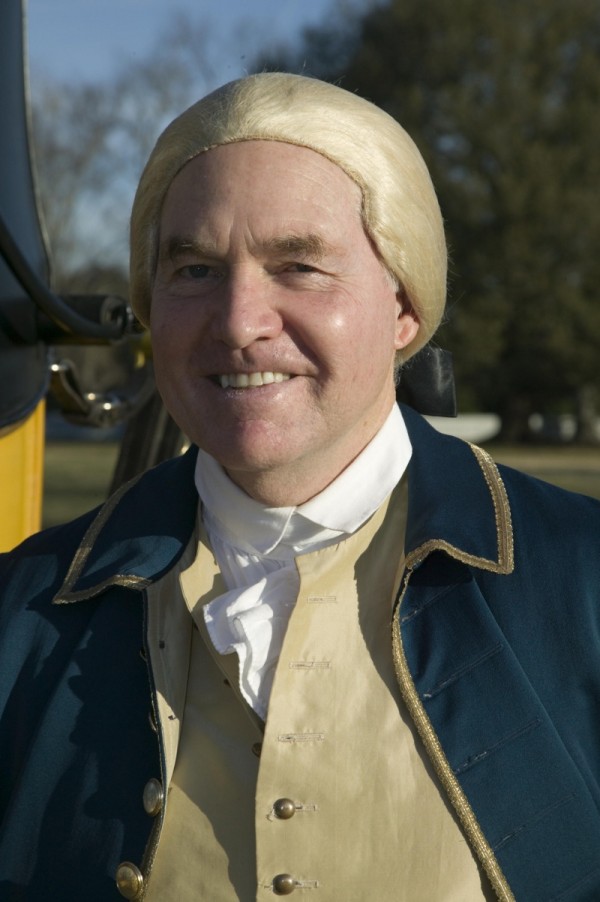
Jack Flintom portrays George Wythe.
“No man ever left behind him a character more venerated than George Wythe,” Thomas Jefferson once wrote. Wythe is portrayed here by Jack Flintom.
Thomas Jefferson received his instruction in law from George Wythe, a Virginian whose life-long love of learning led him to become the first law professor in America.
Wythe signed the Declaration of Independence. He was a framer of the federal Constitution and he was instrumental in designing the seal of Virginia.
And he was murdered by one of his heirs.
Thomas Jefferson Heroes In History
[…] militiaman put down his drink, left the Hanover County, Va., establishment and g […]